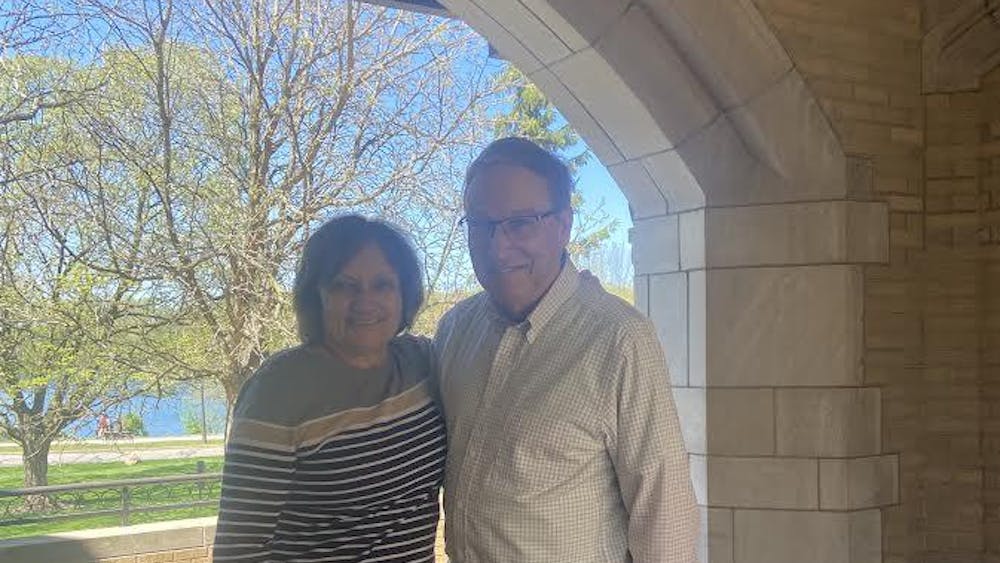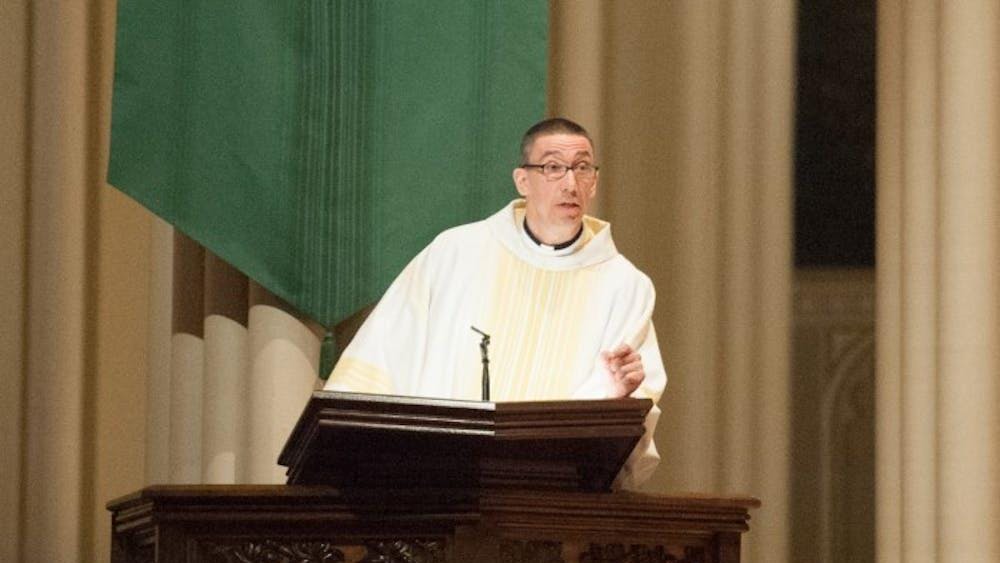Jack Swarbrick, vice president and James E. Rohr Director of Athletics, and Patricia Bellia, William J. and Dorothy K. O’Neill professor of law and chair of the Faculty Board on Athletics spoke about COVID-19 in the Eck Institute for Global Health's weekly “Consider This!” webinar episode. Titled “Pandemic and Athletics,” this session explored how the pandemic is affecting college athletics.
Guest speakers Swarbrick and Bellia discussed the decision for Notre Dame to continue fall sports, the roles of National Collegiate Athletic Association and the Athletic Coast Conference and how the pandemic is affecting college athletics nationally.
Swarbrick spoke of Notre Dame sports and the pandemic's impact on student athletes and coaches, while Bellia explained how her perception of what the role the pandemic would play on athletics differed from reality.
Notre Dame athletics has evolved on a daily basis as a result of the unprecedented times of the pandemic, Swarbrick said. He stays connected with others in the industry as much as he can, talking to a lot of athletic directors, commissioners and the media, in attempt to get an advanced warning of what is coming next. However, everything that has happened has been impossible to predict.
“What I say at nine o’clock is probably wrong by noon, what I say at noon is probably wrong by three,” Swarbrick said. “It’s the life we’re all living.”
The challenge he had was not knowing with certainty which conferences would subsequently make a decision to go conference only. The opportunities were there, but the risk could not be eliminated, which made the ACC the most attractive choice for Swarbrick.
He noted the hardest thing for student athletes throughout the pandemic has been staying positive. Everything has changed, as students experience less interaction with their teammates and coaches. Student athletes were excited when they received the football schedule, Swarbrick said, as this gave them something to look forward to during times of uncertainty.
Although the athletes spend a majority of their time practicing and training, Swarbrick recognizes that they are student athletes.
“It’s important to remember that these are students first,” he said. “The critical dividing line in the future of athletics is having schools in the country staying committed to athletes as students.”
As many people look forward to Notre Dame football in the fall, Swarbrick offered a few parting words to the audience, saying the Notre Dame community should be proud of the leadership of the University. He said he is amazed at the steps it has taken to give students the chance to be back on campus and to have a successful experience at Notre Dame.
“Of all the things that the students tell me, the thing they say the most is, ‘I am excited to be back, I hope I can play, but I can’t tell you how appreciative I am for everything this University has done to give me a shot,'” Swarbrick said.
Swarbrick was assured by the University's leadership that the Notre Dame community will come together and figure out how to navigate the times successfully because he said he strongly believes it is a University and a community that can.
Bellia, chair of the University’s Faculty Board on Athletics, has influenced the philosophy of athletics at Notre Dame. She keeps track of admissions, graduation rates and everything else at Notre Dame that impacts student athletes’ progress toward their degrees. However, the pandemic has introduced a new set of challenges for student athletes.
Bellia did not appreciate how rapidly things would change on the intercollegiate landscape as a whole. It was not what she expected to happen, she said, and she emphasized the need for a statement of values for all colleges.
Notre Dame has a unique structure and depth of involvement, and Bellia said she does not see the University's specific set of policies replicated at any other institution in Division I.
“For Notre Dame, [they] have a statement that says, ‘Here’s what we are about. Here are the principles about academics that we cherish. Here are the principles about student welfare that we cherish. Here’s what we expect from our coaches, here’s what we expect of our administrators. Here’s what we want the life of a student-athlete to look like,’” Bellia said.
Using her personal experience as an athlete in college, Bellia continues to work to facilitate the lives of the student-athletes at Notre Dame. Notre Dame provides many benefits for its student athletes to have the best opportunity to get the education they signed on for, she said .












